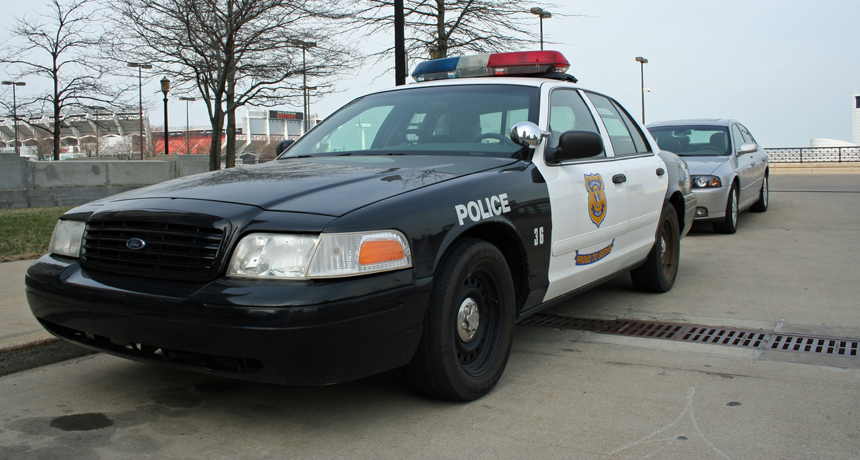Questions for ‘Heartbeat can affect racial perception of threat’

When police answer an emergency call, they may need to make quick life-or-death choices — and a wrong decision has sometimes had fatal impacts.
Whpq/Wikimedia Commons (CC BY-SA 3.0)

When police answer an emergency call, they may need to make quick life-or-death choices — and a wrong decision has sometimes had fatal impacts.
Whpq/Wikimedia Commons (CC BY-SA 3.0)
Register to access:
An error occurred. Please try again.
Already Registered? Enter your e-mail address above.